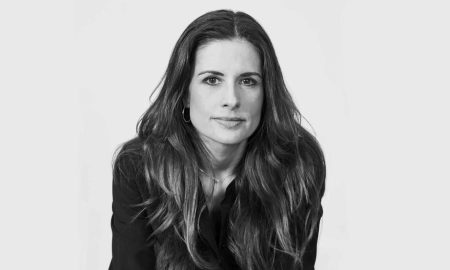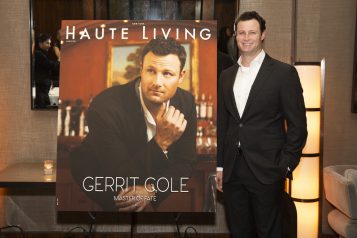
Most of us know Jeff Koons as the highest priced living artist of our time, but Koons is much more than that. He’s a family man, who gives time and money to the International Centre for Missing & Exploited Children (ICMEC) and has even started the research arm of the organization, The Koons Family Institute on International Law & Policy. The organization advocates, trains and collaborates with global partners to protect children from abduction, sexual abuse and exploitation. We caught up with Koons ahead of the 2016 Gala for Child Protection, which honored his friends Eli and Edythe Broad, and spoke with him about his involvement.
HH: How has the center helped families and your research on them also?
JK: The way I got involved with the International Centre for Missing and Exploited Children came about through me being a victim, a left behind parent. My son Ludwig was an abducted child and he was taken during a parental abduction, taken from New York state to Italy. This occurred back in 1994 and so, I really did not know where to turn and a friend of mine directed me to the National Centre for Missing and Exploited Children.
HH: Were they able to help?
JK: By the time that I was there, it was very, very difficult for me to get my son returned. When he arrived there, Italy kind of took over the jurisdiction of the case even though all the events, the divorce, the custody preceding started here in New York state.
Italy had signed, but not deposited the Hague Convention, and they used that technicality not to return my son. So, that’s how I got involved and it was a horrible experience, you know, very traumatic, worrying about my son and not being able to see him and interact with him during different parts of this custody situation.
HH: How did you get through it?
JK: In working with the International Centre for Missing and Exploited Children, I realized that trying to help other children led me to continue to have faith in society and to be able to maintain a faith in humanity. So, I used my art and I used the ability to try to help other children and other parents to hopefully have outcomes [that] would be more successful [than my own.]
HH: Is that how the Koons Family Institute, which is the research arm of the International Centre for Missing and Exploited Children, came about?
JK: They invited me to be on the board and we came up with the idea to create the Koons Family Institute that would be the research arm of the international center that would aim to create international laws and policies, so that people would have something to follow in these complicated cases over international boundaries.
HH: What has the center accomplished?
JK: Independent research publications that have become very central for practitioners and policy makers and I think over the years, the Koons Family Institute has been involved in over 100 laws that have been passed.
We’ve also been able to educate and inform people. A lot of times people involved with the problems and different kinds of countries would like to do the right thing but they don’t really know what it is that they should do. So this is kind of the work that the institute does.
HH: You’ve since had 6 younger children with your wife Justine, are you surrounding with children to make up for the loss of Ludwig, as well as, Shannon, a child you gave up for adoption, although have since reconnected with.
JK: I’ve always enjoyed children and I think it was just a very natural kind of outcome. Both Justine and I grew up with only one sibling but [with] an appreciation for a kind of a family life and I think it was very natural for us. We both enjoy the idea of a larger family and of siblings being able to have each other to interact with. I mean, we find what brings us joy in life are activities that we do together, being in this world is a celebration of life and of children.
HH: You are close friends with the Broads, who are über-philanthropists, did you bring them to this cause?
JK: I may have possibly directed their attention to it. The Broads are extremely generous and have been involved in philanthropy for so many years. Eli and Edythe learned in life a way to better themselves and reach a fuller potential of what they can be in this world. I’ve learned so much from them and think of them as role models because of their responsibility to this community and everything they do help other people. They have the Broad Institute, which furthers biomedical research, and the Broad Prize for Urban Education. [Their goal is] trying to help people, to better the worst school districts and give these people opportunities to pull themselves up.




















